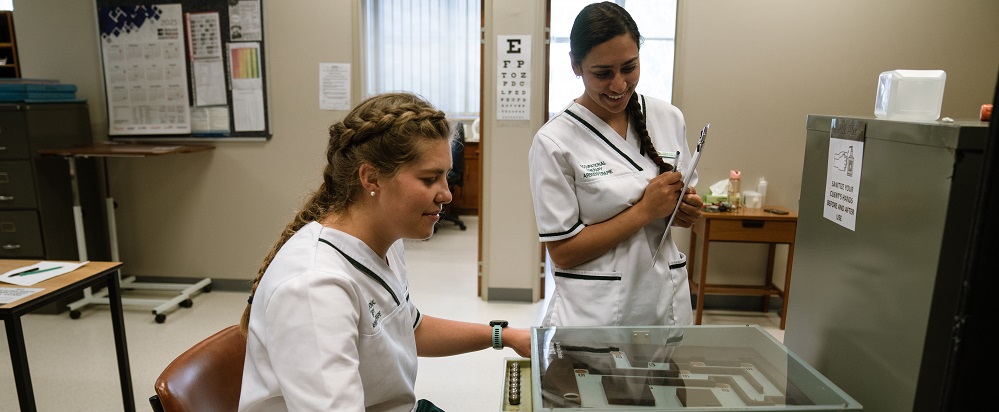Medicine and Health Sciences

Occupational Therapy is a dynamic and rewarding profession. This programme equips you with the knowledge and skills to assess and design effective interventions for persons of all age groups with developmental delays, with differential diagnoses and with functional deficits. Activity is used as the treatment method. The intervention programmes are designed for application in home environments and in community settings with the aim of enabling the persons to attain optimal occupational performance. These programmes prevent functional disability, rehabilitate patients, and promote their overall health.
As an occupational therapist, you will approach a patient holistically and, taking into consideration physical, psychological, social and emotional aspects, address all areas of the patient’s occupational performance − this includes self-care tasks, and work- and leisure-time activities. With regard to children, whose main occupation is play, treatment programmes are based on play and school-related activities.
Indirect occupational therapy services include the guidance you will give to teachers, employers, family members and caregivers to enable them to assist patients to achieve optimal occupational performance, and the management of activity programmes presented to groups of people in facilities and in the community to enhance healthy lifestyles.
The training of occupational therapists
This is a four-year programme. The first year of the programme is presented mainly at the Stellenbosch Campus and the rest of the programme at the Tygerberg Campus. The programme comprises a study of Occupational Therapy (theory and practice), Psychology, Sociology, Special Physics, Industrial Psychology, Biology, Anatomy, Physiology, Pathology for Allied Health Sciences, and Research Methodology in Occupational Therapy.
On completion of the programme you are required to do a year of community service, after which you will be eligible for registration as an Occupational Therapist with the Health Professions Council of South Africa.
As a trained occupational therapist, you may find employment opportunities in a number of different environments. These include hospitals, private practice, community clinics, industries, schools for children with a wide range of special needs, rehabilitation centres and special units (e.g. spinal unit) and insurance companies.
For further information on the curriculum, see our Calendar. This qualification may be followed up with a Master of Occupational Therapy and a PhD.
x
